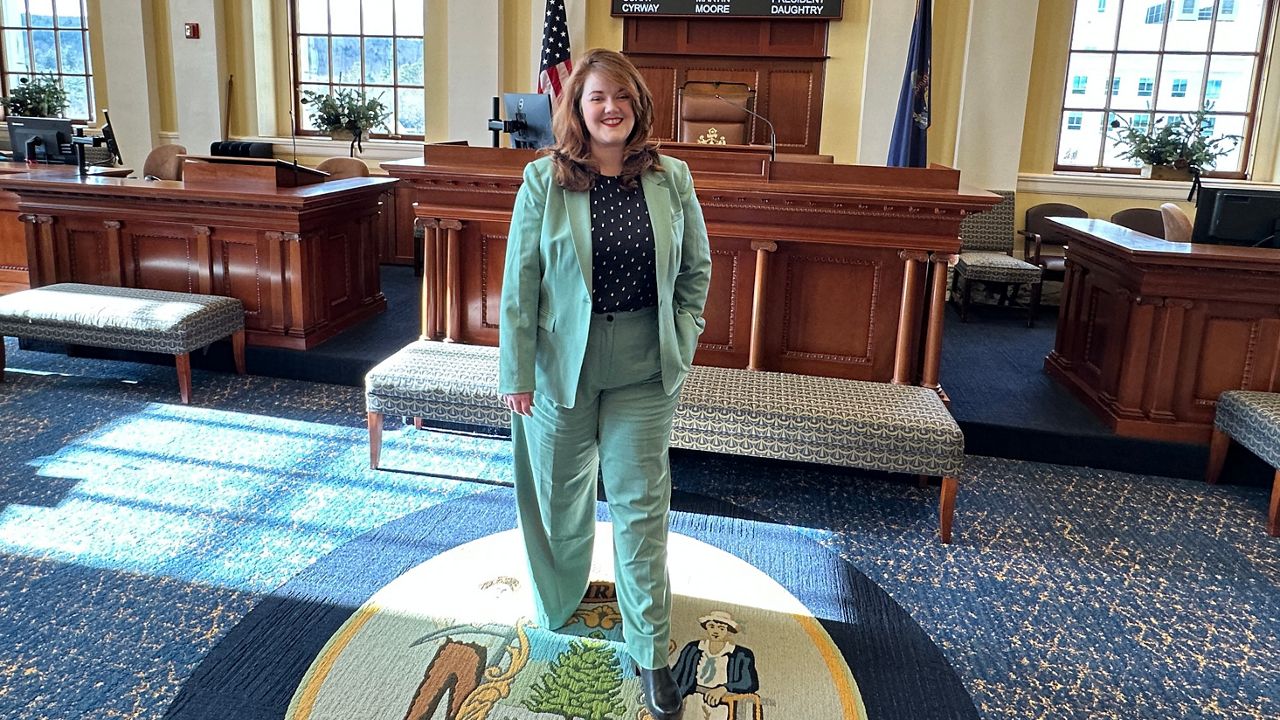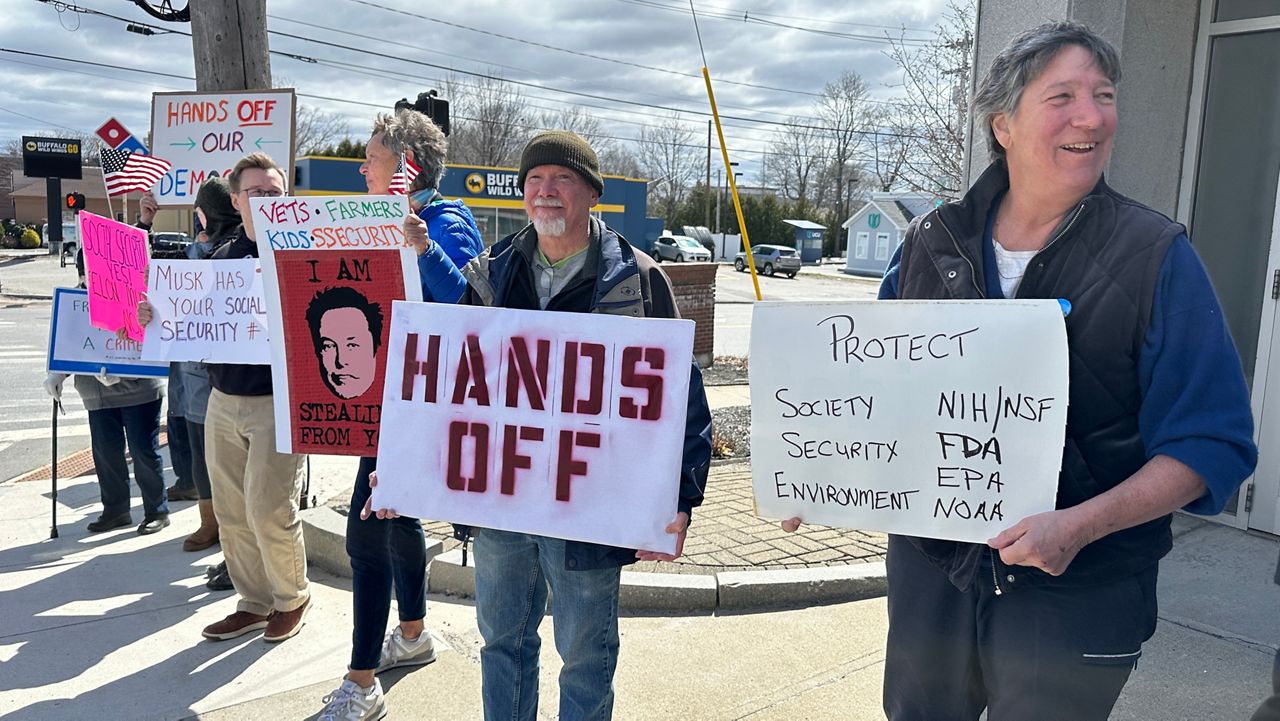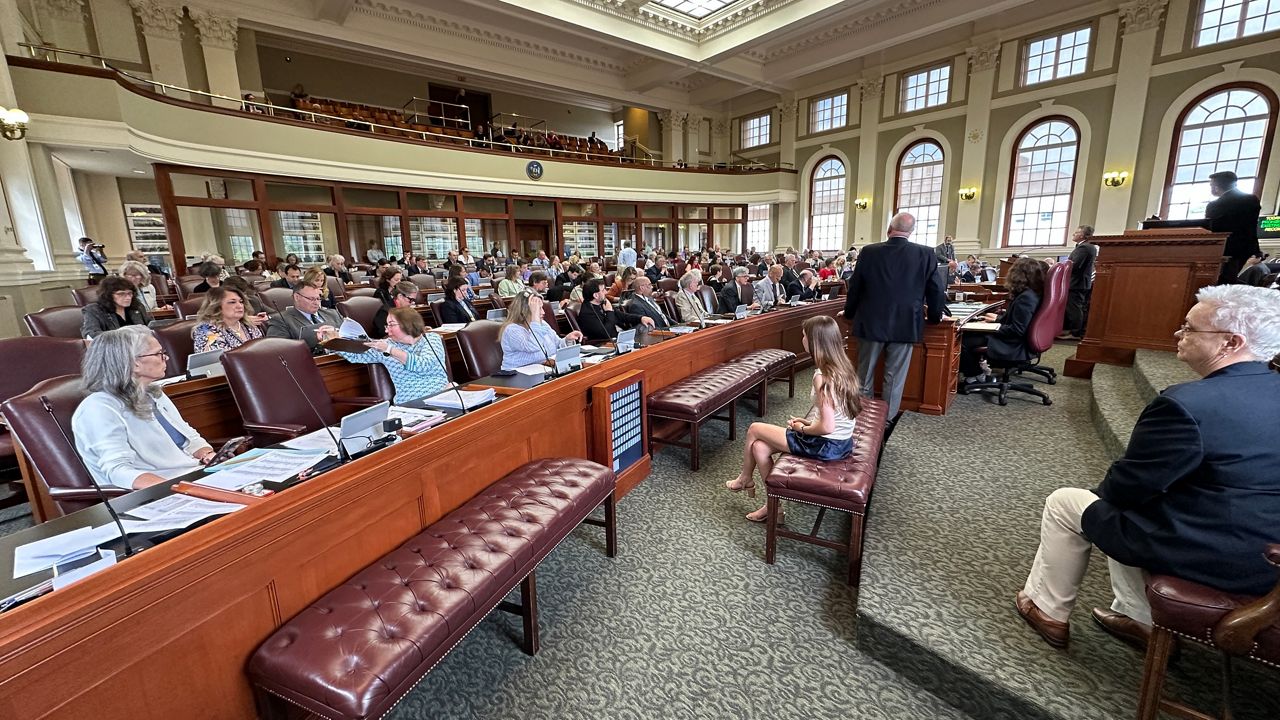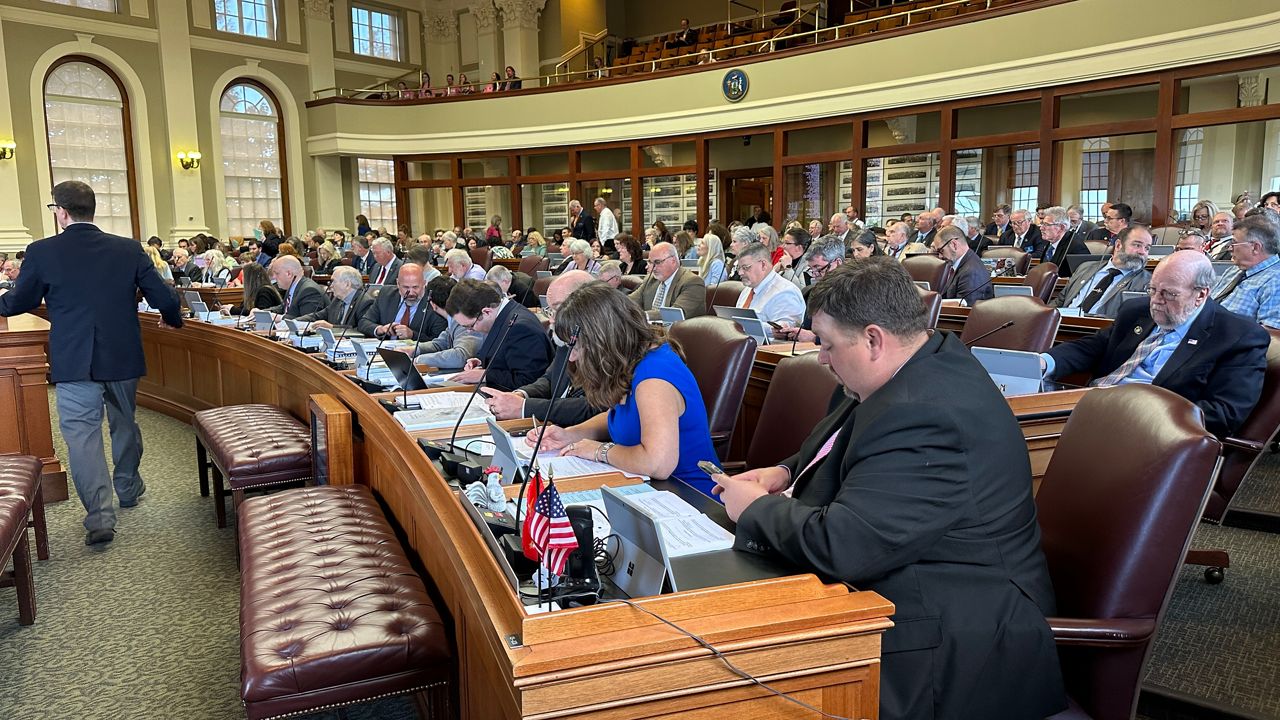AUGUSTA — Maine Senate President Mattie Daughtry is inviting detractors of a new paid family and medical leave program to work to make it better, not try to kill it before it begins.
Daughtry, a Brunswick Democrat, told Spectrum News Thursday that it’s “frustrating” to see a bill from Rep. Joshua Morris (R-Turner) that proposes to defund the program.
“I think people will be able to see that this is just a gotcha bill put in at the beginning of session looking for a headline before the program is really able to dig in,” she said. “I really urge my colleagues who are coming after it to really be part of the discussion, really talk about implementation. This is the law of the land. This is not up for debate.”
In July 2023, Gov. Janet Mills signed the state budget, which included language to create the new paid family and medical leave program.
At the time, Maine was the 13th state to establish a benefit to allow workers to take 12 weeks of paid time off for medical reasons, to care for a relative or for the birth of a child, according to the Maine Department of Labor.
To fund the program, beginning on Jan. 1, employers with 15 or more workers will contribute 1% of wages, with the company splitting the cost with workers. Employers with fewer than 15 workers will not be required to contribute but must take 0.5% of employee wages to pay in to the program.
And while payments start in January, workers will not be able to use the benefits until May 2026.
“No one should have to choose between taking care of themselves or a loved one and financial disaster,” Daughtry said. “We are the only country or developed country that does not have this type of program.”
On Monday, Morris said he’s sponsoring emergency legislation to repeal the payroll tax that’s set to take effect Jan. 1.
“I believe that this new tax should be repealed because it’s time to lower Mainers’ cost of living as much as possible as quickly as possible,” he said in a statement that referred to inflation, groceries and energy costs.
But Morris’ bill faces an uphill climb because as an emergency, it needs two-thirds support from both the House and Senate. Democrats control both chambers and defunding the program would require some who supported the bill just last year to now reject it.
The Maine State Chamber of Commerce has continued to express concerns about the program, most recently raising questions about language that requires employers that already have paid leave programs to pay in to the system, even if intend to opt out.
Rules released earlier this month say employers with a “substantially equivalent private plan” can apply for an exemption from the program starting April 1.
House Minority Leader Billy Bob Faulkingham (R-Winter Harbor) said he thinks they can get bipartisan support to change the program to one that is voluntary, which is the way it works in New Hampshire.
“That’s something we think we might be able to get some bipartisan compromise on, working on that program, fixing it,” he said. “Keeping the paid family leave portion but maybe doing something like New Hampshire has where it’s a voluntary program.”
Daughtry spent 12 years working to get a bill passed to create the system. And long before that, dating back to at least the early 1990s, there have been studies looking for ways to implement a workable system, she said.
In the past, Daughtry said she sponsored bills to create a voluntary program along the lines of what Faulkingham is suggesting. But she’s since seen evidence that those types of programs don’t work.
“What I heard loud and clear from the insurance industry as well as individuals is that it does not work,” she said. “It actually has the opposite effect of having an opt-in system. It stifles the free market.”
Destie Hohman Sprague, executive director of the Maine Women’s Lobby, said workers already take time off to handle major medical events and providing some pay during that time is critical to keeping people economically secure.
Depending on income, the paid leave benefits will replace between 66% and 90% of wages.
“This could stabilize your income for up to three months so that we don’t have to make really tough choices between caring for ourselves, caring for our loved ones and meeting our bottom line,” Hohman Sprague said.











